Discover Bharatvaarta
Bharatvaarta

Bharatvaarta
Author: Bharatvaarta
Subscribed: 102Played: 3,891Subscribe
Share
© 2024 Bharatvaarta
Description
Bharatvaarta podcast is a commentary on politics, policy and culture focused on India. The podcast brings together people from different walks of life who have varied and interesting perspectives on what's happening around us.
446 Episodes
Reverse
India’s tax system is once again at a crossroads with GST 2.0. What began as the biggest reform in independent India was riddled with compromises, complexities, and billion-rupee disputes — but what do the new changes really mean for ordinary citizens? Tax lawyer and founder of Tax Compaas, Ajay Rotti, joins us to break it all down.
In this insightful conversation, Ajay explains why GST was born more political than economic, how disputes over popcorn, KitKat, and cosmetic creams exposed deep flaws in the system, and why rate rationalisation today is less a revolution than a course correction.
We also dive into what GST 2.0 means for the real middle class — from grocery bills and dairy products to insurance and savings — and why simpler compliance could finally give relief to businesses and MSMEs. Ajay sheds light on how tax tribunals might speed up litigation, why expanding the tax base is essential, and how trust, not just revenue, is the true foundation of a fair tax system.
Finally, we turn to the larger picture: how taxation shapes India’s growth story, the balance between states and the Centre, and why reforms must go beyond collections to building confidence in governance.
Chapters
00:00 – Intro
01:00 – From Popcorn to Shampoo: Making GST Rates Simple
10:00 – Why GST Had So Many Slabs in the First Place
20:00 – Inside the GST Council: How India Decides Taxes
30:00 – One Nation, One Tax: Logistics & Compliance Gains
45:00 – Insurance, Housing & Middle Class Impact
55:00 – The Future of GST: Can We Get to One Simple Rate?
⸻
👉 If you enjoyed this conversation, don’t forget to subscribe to Bharatvaarta!
We bring you deep, thoughtful discussions on politics, policy, and culture every week.
📢 Follow us on Twitter: https://twitter.com/Bharatvaarta
📸 Follow us on Instagram: https://instagram.com/Bharatvaarta
👤 Follow the Host – Roshan Cariappa
📢 Twitter/X: https://x.com/RoshanCariappa
📸 Instagram: https://www.instagram.com/carygottheblues/
India’s foreign policy faces new challenges as the US shifts from calling us a “partner” to branding us “problematic.” What does this mean for India’s place in the world? Abhijit Chavda breaks it all down.
In this explosive conversation, Abhijit Chavda breaks down how Washington’s view of India has shifted from “most important partner” to “problematic.” We examine Peter Navarro’s outburst, why tariffs are no longer trade tools but geopolitical weapons, and how the deep state often pulls strings behind elected governments.
The discussion also covers Trump’s possible return and what it means for India, China’s long game of boxing us in, and the uncomfortable truth that superpowers have no friends—only interests. Abhijit explains how globalisation and the dollar are used as levers of control, why Europe is losing relevance in the emerging order, and how technology has become the new battlefield.
Finally, we turn the focus back to India: why we lack long-term strategic will, why short-term politics keeps us on the defensive, and what it would take for India to start thinking in centuries, not election cycles.
⸻
Chapters
00:00 – Intro
07:48 – Why India Is Suddenly “Problematic” for the US
15:51 – From Partner to Pawn: Washington’s Mask Slips
24:02 – Tariffs as Geopolitical Weapons
32:09 – The Deep State and Its Global Games
40:08 – Trump’s Return: What It Means for India
48:06 – China’s Strategy: Boxing India In
56:06 – Superpowers Have No Friends, Only Interests
01:04:11 – Globalisation and the Dollar Trap
01:12:17 – Europe’s Decline in the New World Order
01:20:24 – Technology and India’s Crossroads
01:26:40 – Final Thoughts: Can India Think in Centuries?
⸻
👉 If you enjoyed this conversation, don’t forget to subscribe to Bharatvaarta!
We bring you deep, thoughtful discussions on politics, policy, and culture every week.
🎧 Listen on Spotify: https://open.spotify.com/show/2slDFL5jAFh8k0XK3yR2sQ
🎧 Listen on Apple Podcasts: https://podcasts.apple.com/in/podcast/bharatvaarta/id1510599852
📢 Follow us on Twitter: https://twitter.com/Bharatvaarta
📸 Follow us on Instagram: https://instagram.com/Bharatvaarta
In this hard-hitting follow-up, author Medha ji dismantles pop-culture myths around the Mughals and revisits why Ch. Shivaji Maharaj’s revolution mattered. She challenges romanticized screen portrayals (Salim the “hero,” Akbar the “liberal”) with court chronicles and references, then contrasts them with Ch. Shivaji’s governance—protecting civilians, punishing molestation, and easing agrarian burdens. We also examine the human cost of imperial monuments—extraction from farmers, enslavement, famine—and ecological shifts like poppy displacing native crops, alongside Jahangir’s own tally of mass hunts. Finally, we address textbook narratives that blur the Maratha handover to the British—and why remembering accurately matters now.
Chapters-
00:00 – Intro
01:07 – Why History, Not Religion, Matters in This Discussion
03:12 – Bollywood Myths: Salim the Drunkard, Akbar’s Scouts & Harems
10:18 – Babur’s Atrocities & Guru Nanak’s Testimony
17:26 – The Massacre at Chittorgarh: 40,000 Killed
22:12 – Jahangir’s Hunts, Addictions & Obsessions
28:25 – Slavery, Eunuchs & Exploitation under the Mughals
34:47 – Ch. Shivaji Maharaj's Moral Code: Protecting Women & Civilians
35:14 – The Tax Burden: 50% vs 10% Under Shivaji
39:50 – What Did the Mughals Really Give India?
41:05 – Monuments, Temples & the Cost of Glory
43:15 – Distorted History: Who Really Ruled Before the British?
48:20 – Broken Temples, Opium Cultivation & Ecological Collapse
50:18 – Skull Mounds, Famines & Forgotten Horrors
52:30 – Final Message: Reclaiming India’s Story
👉 If you enjoyed this conversation, don’t forget to subscribe to Bharatvaarta!
We bring you deep, thoughtful discussions on politics, policy, and culture every week.
📢 Follow us on Twitter for updates: twitter.com/Bharatvaarta
📸 Follow us on Instagram: instagram.com/Bharatvaarta
In this honest and deeply inspiring episode, IPS officer and bestselling author Amit Lodha — the real-life hero behind Netflix’s Khakee: The Bihar Chapter — shares raw insights from his journey of justice, storytelling, and service.
From chasing hardened criminals across Bihar to writing bestsellers in stolen moments of silence, Amit Lodha reflects on what it means to stay principled in a world that rarely rewards it. He talks about crime, leadership, failure, and finding purpose — not just in uniform, but in everyday life.
A must-watch for anyone seeking courage, clarity, and conviction in their own journey. 👮♂️📚
In this stirring episode, author Medha Bhaskaran uncovers the brutal history of the Hindu holocaust, forgotten battles, and the rise of Shivaji — not just as a warrior, but as a revolutionary leader who transformed barren land and broken people into a thriving Swarajya.
From centuries of invasion to the emotional rebirth of nationhood, she shares vivid, unflinching stories of enslavement, resistance, and the magical connection between Shivaji and his people.
A must-watch for anyone interested in Indian history, forgotten narratives, and what it really took to build an empire from scratch. 🏹🔥
In this incredible conversation, Intel technologist and grassroots leader Ananthan Ayyasamy shares his astonishing rise—from farm labor and caste barriers in rural Tamil Nadu to becoming a top 1% realtor in the U.S. and writing patents at Intel. But the story doesn’t stop there.
Ananthan gave it all up to return to India—fighting for clean politics, rural upliftment, and systemic change through his foundation and public service. This episode is a masterclass in perseverance, service, and impact.
A must-watch for anyone who believes in the Indian dream—and wants to build it. 💪🇮🇳
In this bold and wide-ranging conversation, investor and author Saurabh Mukherjea explains how artificial intelligence is triggering the biggest shift in India’s white-collar workforce in decades. With powerful data, historical insight, and personal anecdotes, he unpacks how job roles, education models, and middle-class ambition itself must be reimagined.
From creative destruction to entrepreneurial reinvention, from social conditioning to skill-based survival, this episode offers a roadmap for anyone navigating careers, identity, and opportunity in the AI era.
A must-watch for professionals, students, parents, and policymakers who care about India’s future. 🎙️🚀
In this insightful conversation, economist Neelkanth Mishra (Chief
Economist, Axis Bank) breaks down how India can unlock its true growth
potential—and the invisible challenges holding us back. From workforce
participation to capital cycles, from China’s competitive lessons to
India’s fiscal discipline—this is a masterclass in decoding the Indian
economy.
Neelkanth also pulls back the curtain on India’s bureaucracy, governance
bottlenecks, and the difficult balance between good economics and
winning politics. A must-watch for anyone who cares about India’s future
and wants to understand how we can rise faster, smarter, stronger.
🇮🇳📈
A must-watch for every founder, policymaker, student, or citizen with a
stake in India’s economic journey. 🚀
⸻
00:00 – Intro
01:00 – India’s Potential Growth: Workforce, Capital & Productivity
07:07 – The Invisible Roadblocks to Reform
13:52 – How China Forced India’s Bureaucracy to Wake Up
20:35 – Good Economics vs. Bad Politics: Can Fiscal Prudence Win?
25:20 – How India Can Become Export Competitive
30:32 – City-Led vs Distributed Growth: What’s Better for India?
34:31 – Why Managing Urban Growth is Critical
34:42 – Rapid Fire: Past Economic Myths & Books That Changed His Thinking
35:50 – Closing: Markets vs Institutions & Final Thoughts
In this explosive conversation, public intellectual and Infinity Foundation founder Rajiv Malhotra reveals how India is sleepwalking into a new era of digital and ideological colonization. From the failure to build indigenous AI platforms to the dangers of caste-based politics and woke education, this episode is a wake-up call for anyone who cares about India’s sovereignty and civilizational identity.
Rajiv ji also shares personal insights from decades of activism, his experience with US policymakers, and the need for a long-overdue Ministry of Civilization in India. A must-watch for students, policy thinkers, technologists, and cultural warriors.
00:00 - The Failure of Indian Elites in R&D and Technology
01:18 - Introduction to Rajiv Malhotra & His Work
02:00 - Why Tit-for-Tat on Terrorism Won’t Work
04:00 - Baluchistan as a Strategic Counter
06:00 - India’s Narrative War and Liberal Media Blackout
07:30 - The Cost of Speaking Out: Rajiv’s Personal Journey
09:00 - Caste Census & the Collapse of Meritocracy
12:00 - Quotas vs. Quality: How India Is Losing the Talent War
14:30 - Fixing Education: Start from Kindergarten, Not Quotas
16:00 - Inside the Trump Administration & US Policy Lessons
18:30 - India’s Strategic Blindspots in Diplomacy
20:00 - AI Colonization & India’s Tech Dependency
23:00 - Why No Indian LLMs Exist—and Why It Matters
26:00 - Breaking India 2.0: Targeting Kids & Cultural Roots
29:00 - Language, Identity & The Problem With English Education
31:00 - What a Real Bharatiya Education Policy Should Look Like
33:00 - Elites Selling Out & The Ivy League Obsession
35:00 - Hindu Phobia on US Campuses & Rajiv’s Fightback
37:00 - The Rise of Intellectual Sepoys
39:00 - How Should India Engage With the West and China?
41:00 - Why India Needs Its Own DARPA for Defense Innovation
42:00 - What Can Hindu Parents Do Today?
44:00 - Future Plans: Rajiv’s Books, School of Thought & Legacy
47:00 - Meditation in the Kurukshetra: A Daily Practice
49:00 - If Rajiv Met PM Modi Today—What He’d Urge
52:00 - The Need for a Ministry of Civilization
53:00 - Final Reflections & Misunderstood Figures
Join us for an unflinching conversation with Vikram Sood, former Chief of R&AW (India’s foreign intelligence agency), as he decodes the deeper layers behind the recent terror attacks in Kashmir and the shifting geopolitical chessboard. This episode explores the nature of modern asymmetric warfare, the role of local collaboration in cross-border terror, and the strategic motivations of Pakistan’s military establishment.
Mr. Sood also analyzes why India’s response must be calibrated, cold-blooded, and economic—and not always kinetic. He explains how China’s shadow looms large in the region, why Russia’s silence is worrying, and how the average Kashmiri today sees more value in integration with India than ever before. A must-watch for anyone interested in intelligence, national security, and India’s foreign policy in a multipolar world.
00:00 - Introduction & Recap of the Recent Terror Attack
01:10 - Tactical Breach or Strategic Failure?
04:00 - Why Pulling Troops Now Would Be a Mistake
06:00 - Kashmir’s Economy Beyond Tourism
08:00 - Political Unity vs. Opportunism After Attacks
10:00 - How the State Asserts Control Post-Attack
13:00 - Strategic Incentives Behind Proxy War
16:00 - Cold-Blooded Attacks and the Logic of Escalation
20:00 - Pakistan Army's Deep Interest in Prolonged Conflict
23:00 - Post-Article 370 Progress in Kashmir
26:00 - Can Kashmiri Pandits Return?
29:00 - China's Role and Strategic Interests in Kashmir
32:00 - Russian Ambivalence and Global Alignments
36:00 - The Problem with Emotional Responses
40:00 - When Should India Opt for Kinetic Action?
44:00 - Lessons from Balakot & Sri Lanka’s LTTE Strategy
48:00 - Media Narratives vs. Reality on the Ground
52:00 - Pakistan’s Motivation: From Obsession to Provocation
55:00 - Psychological Warfare and Narrative Control
59:00 - Kashmir’s Future and the Need for Inclusive Development
01:03:00 - China's Influence on India's Strategic Calculus
01:06:00 - Final Reflections: IPL, Humor, and Hope
01:07:00 - Thank You & Closing
Join us for a compelling discussion with Sanjeev Sanyal, a distinguished
Member of Prime Minister Narendra Modi's Economic Advisory Council. We
delve deep into the intricacies of India's current economic policies and
its ambitious growth aspirations. Explore the strategic initiatives
driving India's development, the challenges and opportunities that lie
ahead, and the anticipated growth trajectory in the global context.
While the primary focus is on the Indian economic narrative, he also
offers his expert analysis on the broader global economic environment,
including the ripple effects of Trump's tariffs and the prevailing
uncertainty in the global stock markets. This episode provides a nuanced
understanding of India's economic future from a leading voice at the
heart of the nation's economic policymaking.
00:00 - India’s Growth, Restraint & the Free Trade Dream
01:00 - How India Plans to Navigate Global Trade Uncertainty
05:07 - Minimum Government vs Maximum Governance: India’s Gradual Approach
07:54 - Reform Pushbacks & Lessons from the Farm Laws
10:20 - Why Controlled Growth is Better Than Maximalist Growth
12:30 - Creative Destruction & Why Planning the Future Rarely Works
16:01 - India Doesn’t Need Uniform Thinking—It Needs Flexibility
18:04 - Meeting Historical Icons Who Shaped Turning Points
20:17 - Envisioning Bharat @2047: A Civilizational Comeback
23:57 - India’s Lost Maritime Legacy & Why It Matters Today
27:12 - The Population Debate: Fertility, Fairness & Federalism
30:30 - What India Must Prioritize to Reach the Next Growth Orbit
36:18 - Why Indian Industry Needs More Risk & Less Inheritance
37:20 - Adapt to Chaos: India’s Real Superpower
In this episode of Bharatvaarta, host Sharan engages in a deep and insightful conversation with Professor Goutham Desiraju from the Indian Institute of Science. The discussion revolves around Professor Desiraju's follow-up book on the delimitation of states in India, a pressing and contentious topic in contemporary Indian politics. The conversation addresses the need for equal value of votes across different constituencies, the historical and political context of the delimitation freeze, and the implications of reconfiguring state boundaries. Professor Desiraju provides a comprehensive analysis of how delimitation, if done scientifically and fairly, can help India become a more balanced and prosperous democracy. The episode also touches on the broader themes of governance, the effects of linguistic states, and the importance of electoral reforms in achieving a true global leadership status for Bharat by 2047.
Topics:
00:00 Introduction
01:37 Discussion on Delimitation
06:57 Historical Context and Current Issues
11:19 Challenges and Future Prospects
18:35 Demographic Concerns and Solutions
38:58 Linguistic Politics and British Influence
43:05 The British Strategy Against Orissa
43:48 Linguistic States and Social Silence
44:37 British Influence on Local Languages
46:35 Historical Repetition and Linguistic Demands
47:26 Gandhi and Linguistic States
50:17 The Role of Language in Identity
51:25 Jesuit Influence in Tamil Nadu
54:48 The Evolution of Language and Identity
01:06:19 Small States and Governance
01:13:09 Concluding Thoughts on Delimitation
Buy the book
Amazon: https://amzn.in/d/aetUjcS
Why are the markets falling? Is this just another cycle, or is something
bigger at play? In this deep-dive conversation, top financial experts
break down the Trump Trade, global economic shifts, and how retail
investors should navigate uncertain markets. From the impact of foreign
investors pulling out to India's long-term growth story, this episode
uncovers critical insights on the financial landscape. Harsh Gupta
Madhusudan, economist, investor, and author, shares his deep insights on
macroeconomic trends, market cycles, and the forces shaping India’s
financial future. Aashish Somaiyya, veteran asset manager and industry
leader, brings his expertise on retail investing, market behavior, and
how investors can position themselves for long-term success.
They also discuss how to navigate the current investment climate, where
to find value in sectors like financial services and consumer
discretionary, and the significance of investment metrics. Their advice
includes practical tips on portfolio management and the importance of
aligning one's investments with long-term economic growth. The
conversation is rich with insights about managing investments during
volatile periods and the potential of sectors and asset classes beyond
traditional equities.
📌 Timestamps
00:00 Introduction: Market Trends and Cycles
00:30 India's Market Performance and Key Guests
00:46 Discussion with Ash Gupta and Ashish Sumaya
01:41 Understanding Market Corrections and Investor Behavior
02:19 Impact of US Policies on Global Markets
04:30 The Role of US Treasury Yields
09:36 Market Cycles and Investor Psychology
17:05 The Future of Foreign Investments in India
28:19 Regulatory Framework and Financial Inclusion in India
37:14 Balancing Capitalism and Welfare
37:58 Fiscal Responsibility and Growth
39:02 Supporting Vulnerable Sections
40:33 Government Spending and CapEx Cycles
42:00 Private Sector and CapEx Growth
42:44 Interest Rates and RBI Policies
43:43 Demand Stimulation and Economic Asymmetry
48:12 Small Caps and Investment Strategies
55:24 Market Cycles and Portfolio Management
01:12:51 Herd Behavior and Market Corrections
01:15:14 Investment Strategies: Balancing Trading and Investing
01:16:49 Sector Analysis: Financial Services and Discretionary Consumption
01:17:36 Impact of Pay Commissions on Consumption
01:19:14 Financials and Capital Markets: Opportunities and Trends
01:22:30 Choosing the Right Stocks: Metrics and Strategies
01:43:30 The Role of Private Equity and Real Estate in Investment Portfolios
01:47:09 The Future of Crypto and Alternative Investments
01:48:35 Optimism for India's Economic Future
01:51:39 Conclusion and Final Thoughts
Is Hinduism misunderstood in the West? Bestselling author & cultural icon Amish Tripathi reveals the truth about India’s past, exposing colonial lies and misconceptions about Hinduism. He discusses the resurgence of spirituality in India, its evolving identity, and how ancient wisdom is shaping the modern world. From his viral Oxford Union debate defending Hinduism against atheists to his insights on the role of Sadhus and leaders like Modi & Yogi, Amish offers a powerful perspective. Discover why India's economic rise fuels cultural confidence and how Hinduism adapts in the modern age. Learn about his journey from author to filmmaker and what the West can learn from Hinduism.
Topics:
00:00 - Introduction
02:10 - Why Millions Are Turning to Spirituality
06:45 - West vs. India: The Binary vs. Nuanced Thinking
12:30 - Why India’s Economic Rise Fuels Cultural Confidence
18:15 - Oxford Union Debate: Defending Hinduism Against Atheists
23:40 - Colonial Lies & Misconceptions About Hinduism
30:10 - Who Really Wrote Indian History? The British Narrative Exposed
35:45 - The Role of Sadhus: Why They’re NOT Like Western Monks
41:20 - Why India Respects Selfless Leaders Like Modi & Yogi
47:05 - How Hinduism Adapts While Abrahamic Religions Struggle
52:30 - The Power of Rituals & Why They Matter Today
58:45 - From Author to Filmmaker: Amish’s Journey Into Documentaries
1:05:20 - Final Thoughts: What the West Can Learn from Hinduism
In this episode, we delve into the rapid geopolitical changes with new governments in Delhi and the US, and Donald Trump's ambitious agenda. We discuss the impact of these changes, including the Ukraine war and its implications on global power dynamics. The focus then shifts to India, its defense strategies, and its need for fifth-generation fighter planes. We also explore China's military maneuvers, climate change, and the concept of World War III. The discussion wraps up with India's potential in AI, innovations in the tech industry, and the critical need for data-driven decisions for India to emerge as a superpower. Tune in for an engaging and comprehensive conversation on these pressing global issues.
00:00 Sneak peak
01:02 Introduction
01:40 Current Geopolitical changes
02:57 India's Defense Strategy: F-35 vs. Sukhoi 57
07:54 Challenges in India's Defense and Space Sectors
12:34 The American Empire: Decline or Dominance?
18:47 China-India Relations: Border Tensions and Trade
27:05 AI and Innovation: India's Technological Future
33:12 India's Historical Greatness and Brain Drain
33:34 Illegal Immigration and Its Consequences
35:35 Missed Opportunities in Indian History
37:50 Climate Change: Human Impact and Natural Cycles
40:55 Potential World War III and Nuclear Deterrence
43:40 Ancient Civilizations and Misconceptions
51:42 Artificial Intelligence: The Future of Humanity
54:48 Strengthening India's Military and Maritime Power
58:41 Revamping India's Education System
01:02:09 India's Path to Becoming a Superpower
01:03:21 Conclusion and Final Thoughts
In this episode of the Bharatvaarta podcast, host Roshan Cariappa is joined by panelists Ruchir Sharma, Surya Kanegaonkar, and Anang Mittal to discuss the potential impact of the Trump presidency on India and the broader world. The conversation covers a range of topics, including the potential for creative diplomacy, the state of India's indigenous military technology programs, and the effects of U.S. foreign policy on India's strategic autonomy. The panelists also discuss how India can take advantage of this period to reform its internal policies and redefine its role as a regional hegemon. With insights into defense, economic policies, and the evolving geopolitical landscape, this episode offers a comprehensive look at what India might expect and how it can best prepare for the future.
Topics:
00:00 Sneak peak
01:21 Introduction
02:59 Trump's Policies and Global Reactions
08:15 India's Geopolitical Maneuvering
20:24 Modi's US Visit Highlights
27:40 Negotiating with Trump
37:09 Regional Powers and India's Role
45:13 Indian Talent Exodus and Innovation Challenges
01:00:29 Protectionism and Indian Industry
01:19:52 Multilateralism and Global Organizations
01:29:45 The Role of Non-State Actors in U.S. Influence
01:35:21 Opportunities for India Amid Global Shifts
01:38:30 The Need for Bureaucratic and Policy Reforms
01:41:19 Concluding Thoughts and Future Outlook
In this engaging episode of the Bharatvaarta Podcast, host Sharan is joined by Dr. Vikram Sampath to discuss his latest book on the controversial history of Haider Ali and Tipu Sultan's contrasting reigns. The conversation covers various aspects including Tipu Sultan's controversial policies, the methodological challenges of historical writing, and the nuances of presenting an impartial account in a polarized field. Dr. Sampath also shares insights into the importance of documenting contemporary lives for future historians and discusses his initiatives to support upcoming historians through the FIHCR (Foundation for Indian Historical and Cultural Research).
Topics:
00:00 Introduction
01:06 Meet Dr. Vikram Sampath
01:36 The Haider and Tipu Saga
03:47 Balancing Historical Perspectives
05:23 The Craft of a Historian
05:34 Tipu Sultan's Documentation
07:21 Contemporary and Oral Sources
18:05 Comparing Haider and Tipu
26:49 Tipu's Language Policies
30:55 Tipu's Dreams and Interpretations
34:34 Toxic Masculinity and Treatment of Women
37:24 Historical Movies and Controversies
39:29 Challenges in Indian Historical Cinema
42:21 Religious Policies and Temple Grants
51:07 Role of Brahmins and Administrators
55:21 Controversial Historical Figures
57:52 Future of Historical Research
01:04:51 Conclusion and Final Thoughts
On this episode of the Bharatvaarta podcast, we talk to Manish Sabharwal, former independent director at the Reserve Bank of India, explores India's economic and educational reforms over the last few decades. He discusses the impact of city-based growth on GDP, the comparison between India's and China's stock market performance, and the complexities of creating mass prosperity. The discussion covers India’s reform agenda, including the significance of NEP 2020, the role of regulatory cholesterol, and the challenges posed by modern state populism. Sabharwal emphasizes the need for continuous, incremental reforms, formalization, and the crucial role of urbanization, industrialization, financialization, and human capital in ensuring sustained economic growth. He also touches upon the importance of skill development, overcoming regulatory barriers, and leveraging India’s demographic advantages and overseas diaspora to fuel future growth.
Topics:
00:00 Introduction
00:29 India's Economic Transformation: Past and Future
01:40 Challenges and Reforms in India's Economic Policies
02:21 Political Freedom vs. Economic Prosperity
03:01 Fiscal and Monetary Policy: Overrated Solutions?
04:48 Populism and Its Impact on Economic Growth
05:23 The Role of Government, Private Sector, and Non-Profits
08:40 Upcoming Budget and Economic Reforms
10:49 Ease of Doing Business: Regulatory Challenges
16:05 Education vs. Employability: The Skill Gap
21:34 The Importance of English in India's Job Market
28:38 Challenges of Local Governance in India
29:19 The Rise of Bangalore as a Tech Hub
30:35 Infrastructure and Job Creation
32:26 The Future of Kirana Stores and Self-Employment
34:07 Regulatory Challenges and Economic Reforms
34:26 Unpredictability of Job Creation
35:52 Formalization and Urbanization for Economic Growth
37:42 India's Economic Potential and Global Position
46:15 Structural Reforms and Future Challenges
50:19 Leveraging India's Diaspora and Entrepreneurship
52:43 Conclusion: Seizing the Opportunity
In this episode of the Bharatvaarta podcast, we sit down with Dr. Sriram Balasubramanian, a renowned economist and author, to discuss his latest book, 'Dharmanomics.' Dr. Balasubramanian delves into the historical role of temples as economic instruments and their impact on village ecosystems in India. He further explores ancient principles of Dharma and how they can guide modern economics towards sustainable growth. The conversation includes insights into the temple-based economies, the role of culture and norms in economic decision-making, and the influence of ancient economic models on contemporary policy. This discussion is a must-watch for anyone interested in understanding the intersection of India's rich cultural heritage and its economic framework.
00:00 Introduction
01:12 Exploring Dharmanomics
02:10 The Concept of Dharmic Capitalism
03:48 Historical Economic Frameworks
09:28 The Importance of Scholarly Research
13:57 Temple Economy in Bharat
17:38 Temple-Based Economic Models in Southeast Asia
19:27 The Role of Temples as Financial Institutions
20:07 Redistributive Functions of Temples
21:52 Liberating Temple Economies from State Control
24:26 Sustainability in a Dharmic Economy
25:05 Sustainability and Dharmic Economics
25:36 Prime Minister's Vision and Policies
26:51 Dharmic Responsibilities and Cleanliness
28:51 Historical Economic Interactions
30:14 Role of Corporate Guilds
31:56 Chola Dynasty's Geopolitical Influence
37:18 Policy and Dharmic Economic Model
46:17 Future Projects and Dharmic Nudges
50:01 Conclusion and Final Thoughts
Buy his book "Dharmanomics" here: https://amzn.in/d/4CAZTEB
In this episode of Bharatvaarta, Roshan talks to Saurabh Mukherjea for an in-depth discussion on India's economic prospects, the transformative impacts of political and economic policies over the last two decades, and the rising number of new DMAT accounts. They explore the key themes from Saurabh's book 'Behold the Leviathan', touching on India's macroeconomy, market investing strategies, and the socio-economic shifts impacting the nation. The conversation delves into the consequences of educational and healthcare investments, the disparity between the North and South, and the evolving entrepreneurial ecosystem. Additionally, they discuss the impact of digital public infrastructure and direct benefit transfer schemes, and the future challenges and growth potential of India's middle class. Saurabh also provides valuable investing insights, shares personal anecdotes, and reflects on the importance of adaptability in the rapidly changing economic landscape.
Topics:
00:00 Sneak Peak
00:51 Introduction
01:53 Capitalism vs. Socialism in 1947
03:01 The Impact of Education and Policy Choices
05:54 Digital Public Infrastructure and Political Vision
07:40 The Rise of Women and Non-Elite Entrepreneurs
11:14 Challenges and Opportunities in the Indian Economy
17:27 Direct Benefit Transfers and Welfarism
21:58 Formalization and Access to Credit
26:02 Economic Growth and Income Inequality
34:30 Challenges to India's growth
39:30 Lessons from China and the Role of AI
46:33 Policy Interventions and Future Growth
49:39 Employment Linked Incentives (ELI)
50:37 Role of Conglomerates in India's Economy
53:17 Rise of Challenger Companies
57:23 Investing in the Indian Market
01:09:10 Principles of investing
01:18:42 Personal Insights and Reflections
 United States
United States









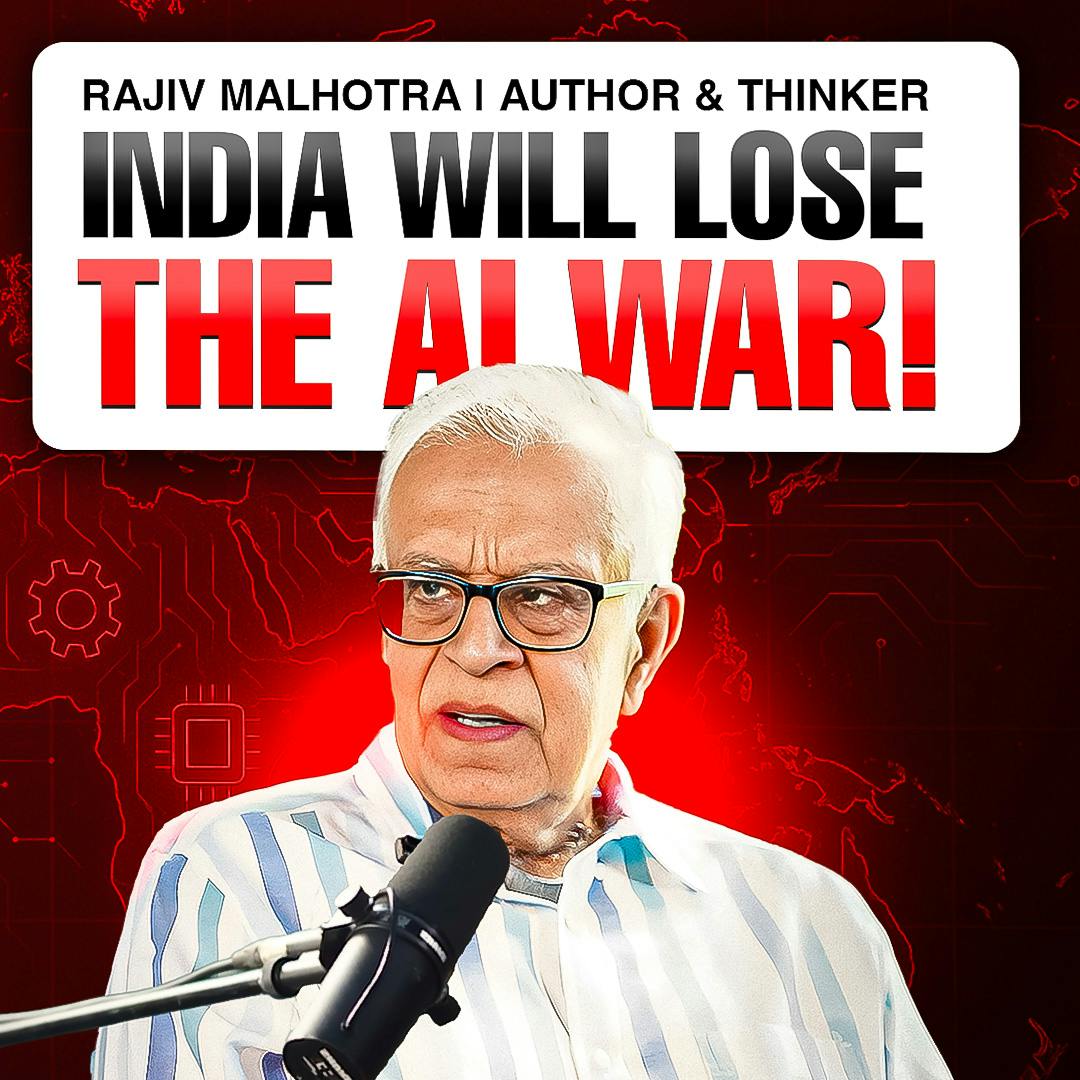
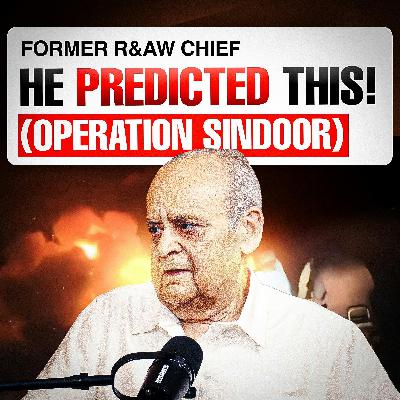
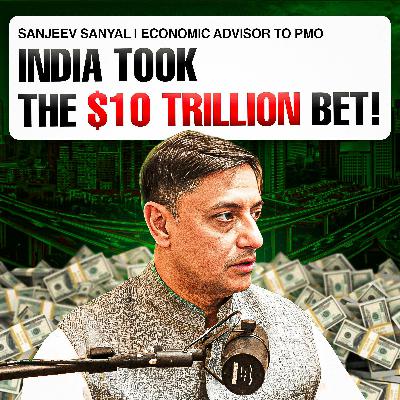
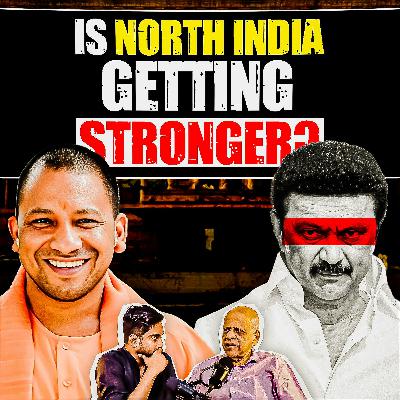





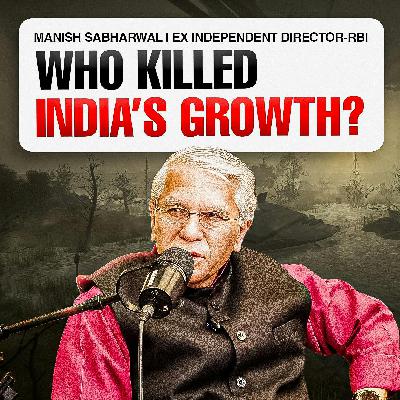
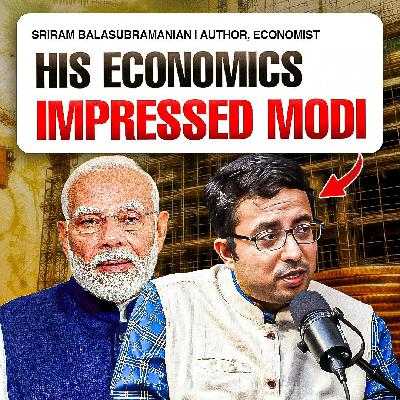



audio quality of the guest speakers was v poor. Couldnt't understand what they were saying at all.
fantastic episode
This should have been in parts, it's too lengthy. Very good analysis although. Please keep nobody can listen continuously more than an hour. Difficult to keep continuity. Even movie has a interval.